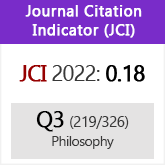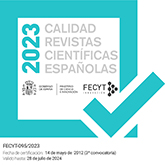¿Qué hay de malo en la eugenesia?
DOI:
https://doi.org/10.3989/isegoria.2002.i27.554Abstract
Eugenics, deprived of its pejorative sense, can be viewed as a way favoured by biotechnology to serve therapeutical purposes which cannot be condemned for what they are. It concerns to philosophy to make clear the different meanings of eugenics, to put a limit to the increasing fascination produced by genetic determinism, and to show that the distinction between therapy and non therapy is not an static but a dynamic distinction. The aim is to requiere more accuracy in facing the ethical problems derived from bioechnological development. Nevertheless, philosophers have been always looking for a firm ontological basis to deal with problems as that of eugenics. The last book of Habermas is an example of it being a rejection of “liberal eugenesics” since it is seen as a threat to the integrity of persons and to their selfunderstanding as free beings. This article brings into question that the ontological resource provides the best method to face bioethical problems, whose solution does’nt depend so much on a precise conception of human species, as on the capacity of humans to use their freedom in a responsible way.
Downloads
Download data is not yet available.
Downloads
Published
2002-12-30
How to Cite
Camps, V. (2002). ¿Qué hay de malo en la eugenesia?. Isegoría, (27), 55–71. https://doi.org/10.3989/isegoria.2002.i27.554
Issue
Section
Articles
License
Copyright (c) 2002 Consejo Superior de Investigaciones Científicas (CSIC)

This work is licensed under a Creative Commons Attribution 4.0 International License.
© CSIC. Manuscripts published in both the printed and online versions of this Journal are the property of Consejo Superior de Investigaciones Científicas, and quoting this source is a requirement for any partial or full reproduction.All contents of this electronic edition, except where otherwise noted, are distributed under a “Creative Commons Attribution 4.0 International” (CC BY 4.0) License. You may read here the basic information and the legal text of the license. The indication of the CC BY 4.0 License must be expressly stated in this way when necessary.
Self-archiving in repositories, personal webpages or similar, of any version other than the published by the Editor, is not allowed.














